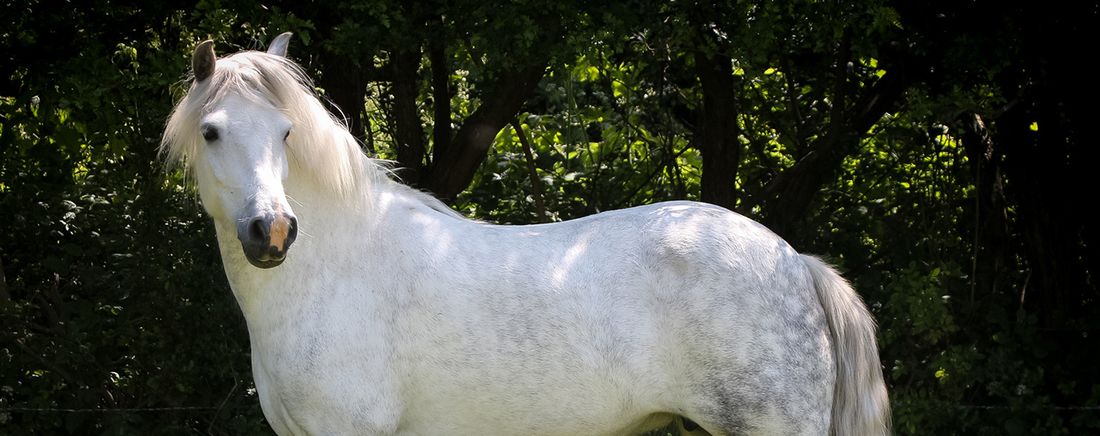Tips to Minimise the Risk of Winter Colic
Winter brings a much greater risk of sudden changes to diet and routine and therefore a higher risk of colic.

Feed Plenty of Forage/Fibre
Not only does ad lib forage provide calories and other nutrients, and heat during its fermentation in the hind gut, it also provides physical bulk in the digestive tract to encourage gut motility and potentially reduce the risk of twists or intussusceptions, which could occur if portions of the gut are empty. Hopefully, your horse has daily access to grazing but, when grass quantity diminishes, providing hay or haylage in the field is essential to keep your horse chewing and fibre flowing through the gut.
If, for whatever reason, your horse is not a good hay/haylage eater, you should seriously consider feeding alternatives to keep your horse’s fibre intake up. Chaffs and alfalfa chops, like Light Chaff, Alfalfa Blend or Alfalfa Plus Oil, or soaked Speedi- or Fibre-beet, are all ideal fed as a “haynet in a bucket” – separate from any hard feed – and can help encourage natural foraging behaviour. Your horse should always have some form of forage or fibre to chew as long periods with nothing to eat can risk gastric ulcers as well as colic.
Encourage Water Consumption
Your horse should always have access to fresh clean drinking water so, when temperatures drop, life can get difficult as water buckets or drinkers freeze over. Some horses will also not drink very cold water so adding hot water so that what’s on offer is lukewarm or tepid, may encourage drinking. If a horse doesn’t drink enough, there is a risk of the gut contents becoming too dry and compacting to cause a blockage.
Other ways to increase moisture intake include feeding soaked hay and wet feeds, like Keep Calm, as well as adding soaked Speedi-Beet or Fibre-Beet to the compound feed. Some horses will happily drink a solution of Aqua-Aide electrolyte – which can also be made with warm water – to improve hydration levels. Make sure they also have access to fresh drinking water at all times after being given electrolytes.
Ensure Daily Exercise
The horse is not designed for a sedentary lifestyle and physical movement is essential to keep the gut functioning and its contents moving so, if turnout is curtailed and your horse is confined to the box, even a walk round the yard is better than nothing. Vets always report an increase in colic cases in snowy weather, when owners leave horses in their boxes. Horses do cope remarkably well in the snow, although sheet ice is another thing!
Change the Diet with Care
Sometimes simply the change to winter forage can upset things and feeding Digest Plus prebiotic, whenever change or potential stress arises, will support the microbial populations of the hindgut and help avoid upsets. If your horse is getting the recommended amount of a mix or cube and work is suddenly interrupted, you can temporarily cut back the quantities until “normal service resumes”.
Problems arise when this situation continues for longer than a day or two as underfeeding a compound feed means you are not only cutting back on calories but on essential nutrients too. Adding a balancer, like Lo-Cal or Performance Balancer, to reduced quantities of hard feed will bring levels of protein, vitamins and minerals back up, without unwanted calories and, if introduced gradually, should also have minimal impact on gut bacteria.


